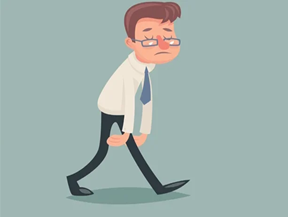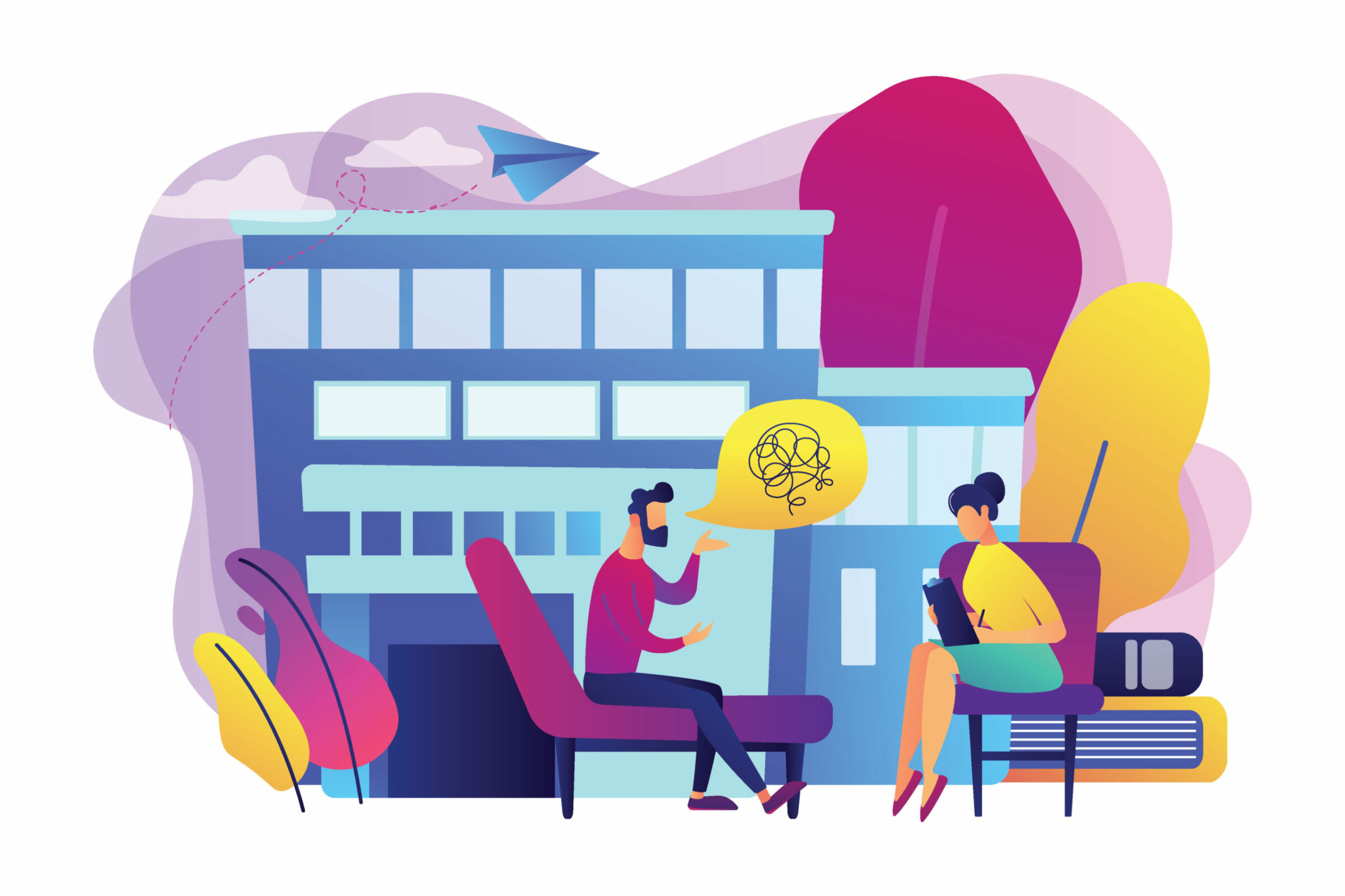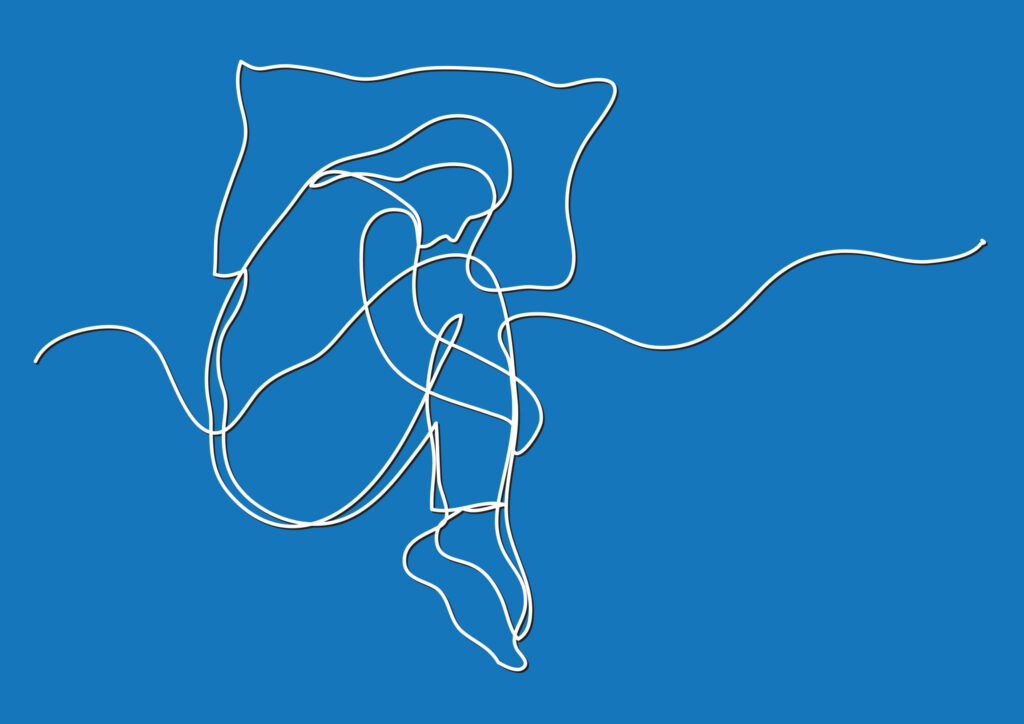Sleep Science Friday: Sleep and Mood with Dr. Jennifer Goldschmied
Sleep Science Friday
It’s the end of another week—grab a coffee/tea/beer/wine and end your week with a quick recap of Sleep Science News!
Sleep and Mood with Dr. Jennifer Goldschmied
11 December 2020
Most of us experience some crankiness or irritability after a night of bad, little, or no sleep. So, it’s no surprise that sleep is linked to mood and mental health—particularly with depression. Additionally, depression and anxiety can in turn affect your sleep, making it more difficult to fall and stay asleep. However, the underlying mechanisms of this bidirectional relationship remains unclear.
In this Sleep Science Friday, we talked with Dr. Jennifer Goldschmied about the connection between your sleep, mood, and neuroplasticity; what the structure of sleep looks like in those with depression; and the surprising effects of sleep deprivation and napping on mood. We also discuss different treatments, such as Cognitive Behavioral Therapy for insomnia (CBT-I) and different medications, including anti-depressants and new alternative treatments, such as ketamine and psychedelics. Dr. Goldschmied also shares with us her experience as a clinical psychologist and sleep scientist.
Dr. Jennifer Goldschmied is a licensed clinical psychologist and Assistant Professor at the Department of Psychiatry at the University of Pennsylvania (USA) and a member of the Communications and Digital Committee at the ESRS. Her research focuses on identifying mechanisms in sleep that modulate mood and emotional processing. Recently, she was awarded an NIH Career Development Award to study the relationship between slow-wave activity, neuroplasticity, and mood in depression. On top of her research, Dr. Goldschmied also works in a clinical setting in behavioral sleep medicine and treats patients with sleep disorders and comorbid psychiatric illnesses.
0:00-0:59 Introduction
1:01-3:51 Sleep, mood, and mental health (Dr. Goldschmied begins speaking at 1:40)
The effects of sleep on mood can be highly variable—however, the mechanisms are difficult to disentangle (Boland et al. 2020; Goldschmied, 2019).
“So, unfortunately, the quick answer is we actually don’t know what the mechanism is…for how sleep modulates mood. But we do know that sleep loss definitely does decrease positive mood and that we typically evaluate our environment more negatively when we’re sleep deprived.”
This may be partially explained by the concept that when the emotional center of our brain is activated, there may be a lack of top-down regulation to moderate the negative or emotional response when we’re sleep deprived. Another link between sleep and mood is looking into neuroplasticity. Sleep, and especially slow-wave sleep (SWS) (Goldschmied et al., 2019), is related to the regulation of neuroplasticity, explains Dr. Goldschmied. Neuroplasticity is also implicated in depression, where patients may show signs of impairments in memory and concentration.
Based off these observations, Dr. Goldschmied then developed and proposed a model in 2019 that suggests that it may be impairments in the brain’s ability to regulate homeostatic changes in neuroplasticity that can then lead to changes in both slow-wave activity and mood in individuals with depression (Goldschmied and Gehrman, 2019). After being awarded a 4-year grant by the NIH, she is now investigating this model and will hopefully have further insights over the next several years.
3:52-5:24 Sleep and depression
Sleep in people with depression looks very different, with several macro-architectural changes visible on a sleep EEG. For example, you typically see delayed sleep latency, more fragmented sleep, and reduced sleep efficiency. Additionally, people with depression also exhibit “hallmark” REM abnormalities where they enter REM quicker, have more REM sleep and more REM density. Changes in SWS, are also observed, as well as micro-architectural changes in sleep which may suggest underlying hyperarousal (Cheng et al., 2015; Dolsen et al., 2017).
5:25-9:04 Sleep deprivation for depression?
 Surprisingly, in about 50% of individuals with depression, sleep deprivation can actually have an anti-depressant effect (Zhang et al., 2017; Goldschmied et al., 2020). However, these effects are short-lived, with any sleep—even a short nap—negating any positive effects on mood. It’s also not feasible to sleep deprive people for long periods of time and tolerance can also develop.
Surprisingly, in about 50% of individuals with depression, sleep deprivation can actually have an anti-depressant effect (Zhang et al., 2017; Goldschmied et al., 2020). However, these effects are short-lived, with any sleep—even a short nap—negating any positive effects on mood. It’s also not feasible to sleep deprive people for long periods of time and tolerance can also develop.
Although, sleep deprivation may be used to initiate an anti-depressant effect and sustained with other methods, such as medication or chronotherapy, with short bouts of sleep deprivation to maintain those responses (Benedetti and Colombo, 2011). At the University of Pennsylvania, Dr. Goldschmied and her colleagues (including Dr. Philip Gehrman) are studying this effect and trying to identify mechanisms in depression to develop new interventions that don’t require sleep deprivation, but may elicit the same anti-depressant response.
In particular, Dr. Goldschmied is asking, “What kind of sleep deprivation can improve mood?” While some studies have looked at REM deprivation, Dr. Goldschmied is focused on slow-wave deprivation (Cheng et al., 2015; Goldschmied et al., 2015). One of her current projects disrupts SWS using auditory tones and seeing if the response between slow-wave disruption is similar or the same as sleep deprivation. In the long-term, it may also be more feasible to disrupt sleep at specific points, rather than total sleep deprivation.
9:05-12:47 Feeling grumpy? Take a nap!
A pilot study on napping and mood showed promising results, where those who napped were able to tolerate frustration better and had lower impulsiveness than those who didn’t nap (Goldschmied et al., 2015). However, long-term experimental studies on napping in adults are lacking and are difficult to perform. Although, napping could still be useful if you have long working days. And in these days, some of the literature on sleep during the pandemic suggests that more people are taking naps now (Gupta et al., 2020).
12:48-16:21 Seasonal Affective Disorder and sleep
Seasonal Affective Disorder (SAD) is a type of depression that tends to present in the autumn and winter and spontaneously goes into remission in the spring (Sandman et al., 2016). Individuals also present with more “atypical” symptoms of depression, such as hypersomnia (rather than insomnia) and increased appetite (rather than decreased). Regarding sleep architecture, there have not been many polysomnography sleep studies on SAD. Although, some suggest that individuals with SAD showed limited differences in sleep continuity and REM measures. SAD is also possibly tied to circadian misalignment as light therapy seems to work in some individuals (Wirz-Justice, 2018). However, there is still a lot of work to be done in this area.
16:22-19:20 CBT-I and Medication
When treating patients with sleep issues, typically sleep hygiene is recommended, followed by behavioral therapies, such as Cognitive Behavioral Therapy for Insomnia (CBT-I). However, in some cases, medication may also be prescribed—although long-term use should be avoided to prevent dependencies.
“CBT-I is a great treatment—it works. And we can’t say that for every treatment, but CBT-I works and it works somewhat quickly, so it should always be a first line of treatment. So, if someone is experiencing insomnia, and especially insomnia comorbid with depression, I would say they should first make an appointment to see a behavioral sleep medicine specialist…but, I think I would recommend seeking out sleep medication if time is of the essence…so if there is a pressing need to sleep better in a day or two, then sleep meds may be the way to go.”
CBT-I and sleep medications have also shown similar levels of effectiveness (Mitchell et al., 2012)—however, sleep medications only work while you’re using them. Therefore, if there is an urgent need to sleep, Dr. Goldschmied recommends making your CBT-I appointment first, getting a prescription for and taking sleep medications until your appointment, and begin tapering off the medications once you begin CBT-I. After a couple weeks, the benefits of CBT-I will become apparent and will have more long-term benefits and be more sustainable than sleep medication.
19:21-22:12 Antidepressants and sleep
In some cases, anti-depressants may be used off-label for treating sleep (Wichniak et al., 2012)—although different medications, and even classes of medications, will have different effects. Individuals with depression tend to have abnormal sleep architecture, such as more REM sleep, than those without depression. Typically, many SSRIs will suppress REM sleep, but do not eliminate it completely and may help to normalize sleep for those with depression. The effect of antidepressants on slow-wave sleep are less clear—with high variability in response to medication. For individuals without depression, antidepressants for sleep purposes are also typically prescribed at a much lower dosage.
However, using medication should be an interim solution when addressing issues with sleep given that CBT-I is such an effective treatment, with effects seen in just a few weeks. Additionally, the long-term effects of antidepressant medications on sleep are still currently unclear.
22:13-25:04 Balancing between treating Sleep and Mental Health
When working with patients with both depression and sleep issues, Dr. Goldschmied says she typically starts with addressing sleep issues—not because it is more important, but because treating sleep can be quicker. Additionally, if you address symptoms of depression while the patient still has sleep problems, treatment may be less effective as sleep affects your mood. Several studies also suggest that improving sleep quality can also improve depressive symptoms. When sleep issues are stabilized, you can then focus on symptoms of depression. And given that CBT-I can work very quickly, you can see improvements much quicker in a patient.
25:05-27:42 Alternative treatments and neuroplasticity
New alternative treatments have now forced researchers to re-evaluate previous theories that suggested certain deficiencies in neurotransmitters (e.g., serotonin and dopamine) as the main cause of depression. However, with novel treatments, such as ketamine (Lengvenyte et al. 2019) and psychedelics (Nutt and Carhart-Harris, 2020; Scott and Carhart-Harris, 2019), it shows that neuroplasticity plays a key role in the regulation of mood (Price and Duman, 2019; Zhang et al., 2019), as well as sleep.
27:43-33:25 How the pandemic has affected our sleep
The pandemic has had a huge impact on our lives and sleep; earlier on, studies showed that people were sleeping longer and later. However, as the pandemic continued, cases of insomnia increased and more requests for prescriptions for sleep aids. She attributes this to more anxiety and stress due to social isolation and uncertainty in the future.
“There is this uncertainty about the future that we really haven’t had to deal with kind of societally, especially to this extent. And I think it’s really important for us to all acknowledge how difficult this time has been…[and] trying to be as normal as possible. But this is not a normal time…we really do need to acknowledge this is tough.”
She quotes her mentor, Dr. Philip Gehrman, in saying that “We’re not trying to work from home during a pandemic; we’re in a pandemic and trying to get some work down.” Additionally, it is important to “be kind to one another and ourselves,” to focus on important things in life, to take care of ourselves, and to be mindful of our sleep and habits on our mental and physical health.
 33:25-36:48 Balancing clinical work with academic research
33:25-36:48 Balancing clinical work with academic research
As both an assistant professor and a clinical psychologist, Dr. Goldschmied says she wanted the flexibility to be able to pursue more than one path—and not just focus purely on research or clinical work—and that working as a clinical psychologist and sleep researcher has been complementary. She notes that working with and connecting with patients helps her to see beyond just conceptual theories of depression or other disorders, and to have a better understanding of what struggles patients are dealing with. This also helps to inform her research, while also being a motivating force that drives her towards aiming to identify ways to improve current treatments. She hopes that her research can help people in the long-term, and that working with patients one-on-one allows her to see improvements immediately.
“I feel very fortunate to be able to do what I do.”
36:49-39:53 Last comments: prioritize your sleep!
Dr. Goldschmied notes that there are a lot of people who want to get the benefits of sleep, without having to actually spend the time sleeping. To this, her response is:
“What I always say is that sleep is really that important. So, if you want to be physically and emotionally healthy, you really need to invest the time in sleep. So, what I would say is get a good mattress and enjoy the time…just know that you’re going to invest 7 hours in your health and you’re going to do it in a way that can actually be really pleasurable…enjoy that time, it’s important. Just do it, 7 to 9 hours…Let your sleep time be something that you look forward to.”
Thank you again Dr. Goldschmied for taking your time to talk to us about sleep and mood and we look forward to hearing more about your research.
Have a nice week everyone and make sure to get those 7 to 9 hours of sleep!
For Additional reading and recent publications:
On sleep, sleep architecture, and mood:
- Boland et al. (2020) An Integrated Sleep and Reward Processing Model of Major Depressive Disorder. Behav Ther.
- Galbiati et al. (2020) The association between emotional dysregulation and REM sleep features in insomnia disorder. Brain Cogn.
- Gerhardsson et al. (2020) Does insufficient sleep affect how you learn from reward or punishment? Reinforcement learning after 2 nights of sleep restriction. J Sleep Res.
- Goldschmied et al. (2020) Spindles are highly heritable as identified by different spindle detectors.
- Goldschmied et al. (2019) Effects of Slow-Wave Activity on Mood Disturbance in Major Depressive Disorder. Pyschol Med.
- Hedström et al. (2020) Insomnia in the context of short sleep increases suicide risk. Sleep.
On seasonality and sleep
- Van Hasselt et al. (2020) Seasonal variation in sleep homeostasis in migratory geese: a rebound of NREM sleep following sleep deprivation in summer but not in winter. Sleep.
- Wescott et al. (2020) Sleep in seasonal affective disorder. Curr Opin Pyschol.
On COVID-19 and sleep
- Cellini et al. (2020) Changes in sleep timing and subjective sleep quality during the COVID-19 lockdown in Italy and Belgium: age, gender and working status as modulating factors. Sleep Med.
- Partinen et al. (2020) Sleep and circadian problems during the coronavirus disease 2019 (COVID‐19) pandemic: the International COVID‐19 Sleep Study (ICOSS). J Sleep Res.
- Schiza et al. (2020) Sleep Laboratories Reopening and COVID-19: A European Perspective. Eur Respir J.
- Trakada et al. (2020) Sleep During “Lockdown” in the COVID-19 Pandemic. Int J Environ Res Public Health.
For similar articles on [x]—see past SSFs:
- Sleep Science Friday: Talking with sleep scientists (27 November 2020)
- Sleep Science Friday: Sleep in the time of corona—with Dr. Christine Blume (20 November 2020)
Just published an article? Want your research to be featured? Saw something interesting? Contact us at the ESRS!
Not a member yet? Apply here and see our wide range of benefits, including a yearly online subscription to the Journal of Sleep Research, automatic membership to the Federation of European Neuroscience Societies (FENS), support for early career researchers via the ECRN, regular updates via the ESRS Newsletter, promotion of your research, and more.




